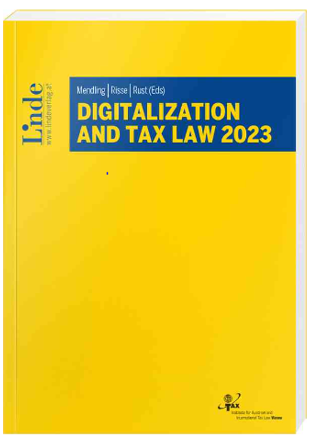This article explores how the AI technologies are utilized to automate and improve the efficiency of tax processes, providing a comprehensive solution for organizations aiming to streamline their tax operations.
All in Tax Functional Excellence
Strategic Reframing in Tax Function Processes and Operating Models
In the contemporary business environment, characterized by turbulence, uncertainty, novelty, and ambiguity (TUNA), traditional tax function processes and operating models are increasingly inadequate.
New Year’s Resolution - Strategic Roadmap to Steer the Tax Function
In the ever-evolving landscape of corporate governance, the tax function plays a pivotal role in ensuring compliance, optimizing financial performance, and supporting strategic business decisions. Developing a strategic roadmap for the tax function involves a comprehensive approach that integrates various elements and stakeholders within an organization.
Maturity Models for the Tax Function
Corporate tax functions need constantly ensure tax compliance and grow in their maturity as technology evolves.
Tax Function Excellence and Artificial Intelligence Models
The transformative potential of artificial intelligence (AI) within the tax function has become undeniable. From processing thousands of transactions with near-perfect accuracy in seconds to facilitating strategic decision-making, AI is reshaping the way tax professionals operate.
Tax Functional Excellence – Tax Planning and Tax Management
In the realm of corporate finance, tax planning and tax management are essential components of a globally efficient tax function. Both components complement one another and draw on interconnected data sources, though they serve distinct roles within a business’s overall tax strategy.
The Role of the Global Tax Process Owner
In today’s complex and interconnected business landscape, the role of the Global Tax Process Owner (GPO) has become essential, especially in large multinational corporations. While companies of all sizes and industries can benefit from tax process oversight, global tax process ownership is particularly valuable in organizations that operate across numerous geographical locations and business units.
The Role of the Tax Function: WHY, WHAT, and HOW
The tax function is crucial to an organization, influencing various aspects from effective business modelling to corporate image, compliance, and internal control. It also plays a significant role in change management programmes and the digital agenda of organization. Here is WHY the tax function matters.
Design Thinking in Developing Tax Function Operating Model
Tax legislation exerts a significant influence on businesses and nations globally. The tax compliance environment is increasingly complex, characterized by a multifaceted system with numerous layers, touchpoints, and interfaces. This complexity presents various practical and theoretical challenges in righting companies through the tax compliance systems. To address these challenges and manage the ever-growing intricacies of tax legal requirements, tax leaders must adopt innovative approaches in designing the tax function operating models.








